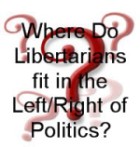Katrina makes the case against government

During a Los Angeles radio program, Ari Kelman, a history professor at the University of California, Davis, approvingly quoted a colleague as asserting that Katrina "might be our first libertarian atrocity."
What he meant is that the drive to cut taxes and minimize government, fueled by libertarian sentiments, had supposedly dealt a severe blow to society's capacity to anticipate, plan for and recover from natural -- and unnatural -- disasters like Hurricane Katrina. Democrats and some Republicans are making clear they hope to use the hurricane as a rationale for refusing to extend the tax cuts enacted in 2002-03 and even launching a new poverty program in the guise of hurricane relief.
"Democrats think this is the worst possible time to be cutting taxes," intoned Thomas Kahn, staff director for Democrats on the House Budget Committee.
But if there is a message in Hurricane Katrina, it's not that taxes are too low. Indeed, federal tax revenue is $225 billion higher than a year ago -- and up more than 50 percent in the last decade. Federal spending has been rising fast, too: It's back up to about 19.5 percent of gross domestic product, almost exactly the average of the postwar era.
The problem is that it's much more fun politically to spend billions on highly visible, $225 million bridges to nowhere in Alaska than on stronger levees in New Orleans. In any case, America had large surpluses in the late 1990s, and nothing was done then to strengthen the levees either.
If anything, the response to Katrina helps make the libertarian case. Let's keep in mind that Katrina was the true atrocity, a gigantic storm whose effects took nearly everybody by surprise. But when the partisan hysteria abates a bit, what we are likely to find is that government at all levels failed to perform effectively. Would that be a big surprise?
President Bush deserves blame for thinking that in creating the Department of Homeland Security, and placing a patronage-run Federal Emergency Management Agency within it, he had done something substantive about U.S. preparedness. But state and local authorities performed no better, and in some cases worse.
Louisiana Gov. Kathleen Babineaux Blanco reportedly turned down Bush's offer to use federal troops. New Orleans authorities kept their fleet of school buses on the sidelines rather than enforce their mandatory evacuation order. And when the going got tough, a third of its famously corrupt police department took to the hills.
Many of the same folks who have been so quick to criticize government for its failure to get things right during Hurricane Katrina now are demanding even bigger government. There is certainly a case to be made, in the age of nuclear-armed terror, that a president should be able to order troops into an emergency without waiting for an invitation -- though civil libertarians might want to think carefully about the implications once they are through bashing Bush.
I disagree with hard-core libertarians on several issues. But they are right to remind us that government failure is no accident. Political incentives tend to make for a lot of misguided decisions, based more on who has the votes than on who really needs the money.
Fortunately, democracy tends to correct its mistakes more quickly than other forms of government. But citizens shouldn't delude themselves that higher taxes and bigger government will make them much safer in the long run.

 Contact Me
Contact Me








0 Comments:
Post a Comment
<< Home